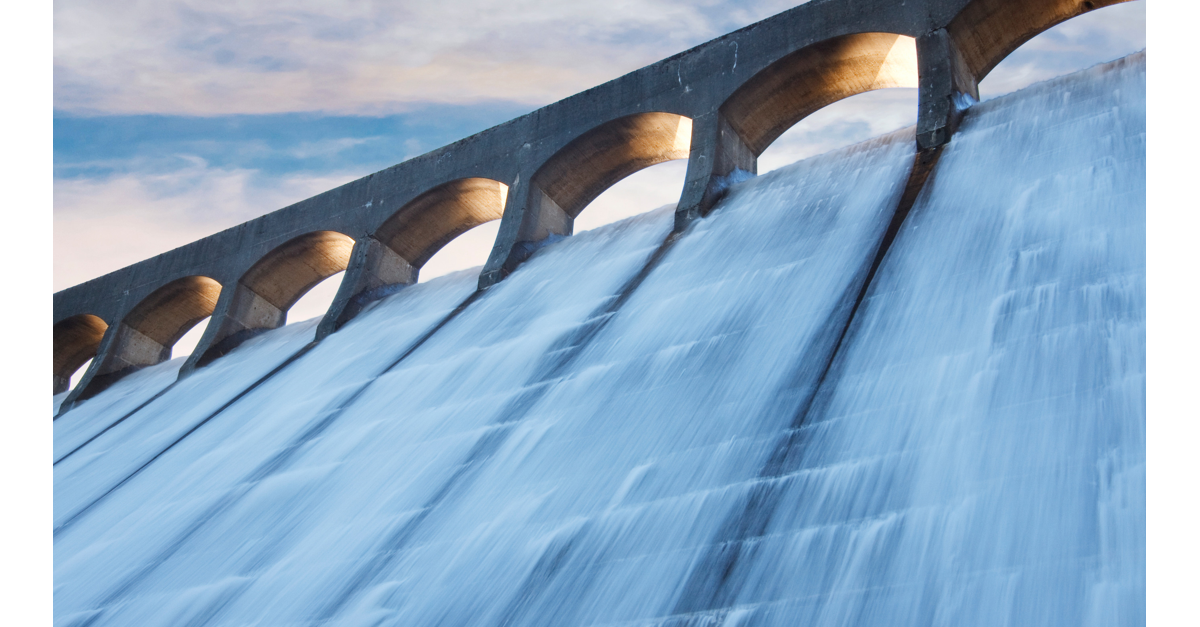Week in water: updates from across the water community

This week in water, World Environment Day sparks reflection on the role of water in sustaining natural systems, while flooding from Queensland replenishes inland lakes across Australia.
Around the country, climate risk is reshaping infrastructure investment, community grants support grassroots water literacy, and new materials could revolutionise sewer networks.
Internationally, Europe releases a landmark water resilience strategy, while Barcelona pioneers a digital-nature hybrid to revive its urban riverways.
Want in-depth articles on water trends delivered to your inbox? Sign up for the Australian Water Association’s weekly newsletter, Source.
National
World Environment Day highlights water’s role in rehabilitation
The Australian water sector marked World Environment Day on 5 June, an opportunity to reflect on how water and its careful stewardship underpin healthy environments.
The timing of this year’s celebration was poignant for regional communities, as floodwaters from Queensland made their way through central Australia, filling inland river systems and iconic lakes such as Menindee and Kati Thanda–Lake Eyre.
New alliance signals step-change for infrastructure delivery
Three of Australia’s leading water and infrastructure firms have joined forces to offer a fully integrated, end-to-end service model spanning strategic advisory, engineering and construction delivery.
Sequana has formed a new partnership with Atlas Engineering Group and IPS (Infrastructure Project Solutions), bringing together a 200-strong team with capabilities across the full infrastructure lifecycle – from early-stage planning through to long-term asset management.
Sequana Co-Founder and CEO Frank Fisseler said: "This is a major step forward for our clients, the sector and our people".
"Together with Atlas and IPS, we’re scaling up to tackle bigger challenges, unlock greater value for clients, and deliver long-term environmental and community impact."
States and territories
Unitywater raises key assets to build climate resilience
Unitywater is futureproofing critical wastewater infrastructure by physically raising high-risk pump stations and switchboards, using climate risk data from the Cross Dependency Initiative.
Unitywater Head of Asset Management Ivan Beirne said the program aims to reduce financial risk and increase resilience.
“We are working with a range of datasets and climate scenarios to assess assets most at risk and particularly, the future financial risk of not doing anything," he said,
“Where that’s the case, we’re designing resilience into our replacement program by physically raising switchboards and other critical assets”.
South East Water invests $130,000 in community projects
South East Water has awarded nearly $130,000 in grants to 20 community groups across Melbourne’s south-east, supporting projects that promote water awareness, environmental care, and community wellbeing.
Now in its sixth year, the program has delivered more than $600,000 in support, with recent recipients including groups impacted by the precautionary boil water advisory in Shoreham and Flinders.
General Manager Digital and Transformation Andrew Forster-Knight said: “It’s exciting to see many impactful projects happening across our service area".
“Community groups are the heart of our communities, and their deep understanding of the local needs are driving real impact."
Landholder Negotiation Scheme guidance finalised
The NSW Department of Climate Change, Energy, the Environment and Water has released two key documents for the Landholder Negotiation Scheme (LNS): the What We Heard Report and final Negotiation Guidelines.
These documents summarise community and landholder feedback on the draft LNS, including submissions on the Reconnecting River Country and Gwydir Reconnecting Watercourse Country Programs, and outline changes to be made in response.
The What We Heard Report captures concerns around transparency, clarity of process, and how negotiations will be conducted under the scheme. In response, the department has proposed refinements to the LNS Regulation and clarified procedural steps within the guidelines.
TasWater lights up sewer project for Dark Mofo
TasWater brought infrastructure and art together for Hobart’s Dark Mofo festival with a dramatic one-night-only installation: a yellow Toyota HiLux suspended 40 metres above the Macquarie Point pump station construction site.
Lit in Dark Mofo’s signature red, the illuminated ute was raised by a 280-tonne crawler crane, offering a high-impact way to spotlight the city’s evolving wastewater infrastructure.
Eco-friendly material could cut $70 billion in sewer repairs
Researchers from the University of South Australia have developed a sewer pipe material that combines drinking water treatment sludge with blast-furnace slag.
The result is more than 50% stronger than traditional cement and resistant to acid corrosion, potentially saving billions in maintenance and advancing the circular economy.
Lead researcher Professor Yan Zhuge said: “This has the potential to extend the service life of sewage pipes, reduce maintenance costs, and promote the reuse of water treatment byproducts," he said.
“If we can cut down on the need for cement, we will be helping to lower carbon emissions."
International
European Commission releases Water Resilience Strategy
The European Commission has launched its long-anticipated Water Resilience Strategy, aimed at repairing Europe’s water cycle and building a Water-Smart Economy.
Water Europe described the strategy as a decisive step that places water at the core of climate and economic security:
“This strategy reflects a growing understanding… that resilient water management is foundational to our competitiveness and wellbeing."
Barcelona transforms Besòs River into eco-tech lab
Barcelona’s GreenInCities project will turn the Besòs River estuary into an urban living lab, blending digital tools, neuroscience and citizen science to promote ecological recovery and resilience.
The project will explore how digital twins and public participation can enhance urban waterway biodiversity in a warming world.
Want in-depth articles on water trends delivered to your inbox? Sign up for Source, the Australian Water Association’s weekly newsletter.



